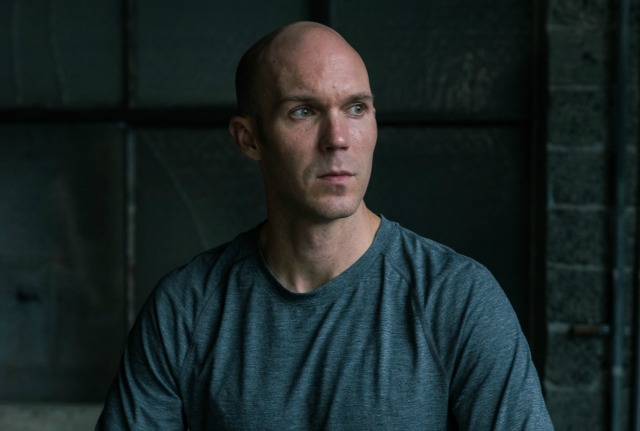Preventing your next running injury should always be a top goal for runners. And physical therapist Chris Johnson is here to offer his expertise.

Repetitive stress injuries – or overuse injuries – affect every runner sooner or later. At some point, you might suffer from:
And of course, you might get a different injury like a muscle strain, patellofemoral pain syndrome, or stress fracture. The options are (unfortunately) quite endless.
That’s because running is an impact sport: it’s you vs. the ground and every mile puts more than a thousand steps on your legs. The repetitive impact of running causes injuries when your body can’t properly absorb those forces.
Preventing your next injury will take a smart combination of well-structured training, strength workouts, and the mindset needed to listen to your body.
And if you can get it right, you might experience progress like this:
“Since following your methods, I’m now running injury free and my pace is now slowly increasing. I know that I will be able to progress toward my goal of running my first marathon at age 60 (with a goal of a sub 4 hour time). Thanks again.” – Charles
“Last year I reached out to you because I had runner’s knee and am a full time dance teacher and couldn’t figure out how to get the 2 to work together. A PT told me I would probably never run long distances again. Well, last weekend I ran a half marathon AND shaved 14:05 off my time to finish at 2:14:58. So – thank you!!” – Sarah
I want you to run healthier with fewer injuries, so I invited a top physical therapist onto the Strength Running Podcast.
Chris Johnson on Staying Healthy and Building a Smooth Stride

Chris Johnson is a physical therapist, Ironman triathlete, coach, and a three-time All-American triathlete.
He started studying physical therapy as an undergraduate while he was captain of the tennis team at the University of Delaware. Chris then earned his PT degree while completing an orthopedic and sports graduate fellowship before working in New York City as a physical therapist and researcher.
Chris then moved to Seattle where he started Zeren Physical Therapy. He’s also a certified triathlon coach, three-time All American triathlete, two time Kona Qualifier, and is currently ranked 16th in his age group in the country for long course racing.
I’m excited to bring you this conversation focused on injury prevention. We’re exploring a lot of fascinating topics:
- Stride smoothness
- Form drills and corrective exercises
- Injury assessments (like the Functional Movement Screen)
- Predicting injuries
- Rehabilitation exercises vs. prevention exercises
Subscribe to the podcast in iTunes, Spotify, Stitcher, iHeartRadio, or Google Play.
Show Links & Resources:
- Follow Chris on Instagram
- The RunCadence app
- Chris’ Physical Therapy Practice in Seattle, WA
- Elite Athletes on Injury Prevention (free)
- Running Injuries resource page
Chris possesses a wealth of information about movement fluency, injury prevention, and treatment. I was honored to speak with him and I hope that you get a lot of value from this conversation.
More Prevention Advice From the Best
One of my favorite projects recently was asking nine elite athletes about their favorite injury prevention strategies.
The result is The Little Black Book of Prevention & Recovery. It features:
- Dathan Ritzenhein – 3x Olympian, 3x National Cross Country Champion
- Devon Yanko – 100k National Champion and 2012 Olympic Trials Marathon Qualifier
- David Roche – 2x National Trail Running Champion
- Amelia Boone – 3x World’s Toughest Mudder Champion
- Andy Wacker – Trail Half Marathon National Champion
- Ian Sharman – 3x winner of the Leadville Trail 100
- Joseph Gray – Mount Washington American Record holder and World Mountain Running Champion
- Kelly O’Mara – Professional triathlete
- Max King – US National Ultra Running Champion and 2x winner World Warrior Dash Champion
Each of these athletes share their most effective recovery or injury prevention strategy – and you’ll see a lot of options for staying healthy.
Strategies include post-race recovery, why eating is critical for prevention, how to come back to running after you get hurt (and what mistakes to avoid), and the power of eliminating busyness from your life.
Pick and choose the tactics that most resonate with you. Start using them and you’ll start feeling a lot more resilient.
Click the image below to download the free book. Enjoy!
